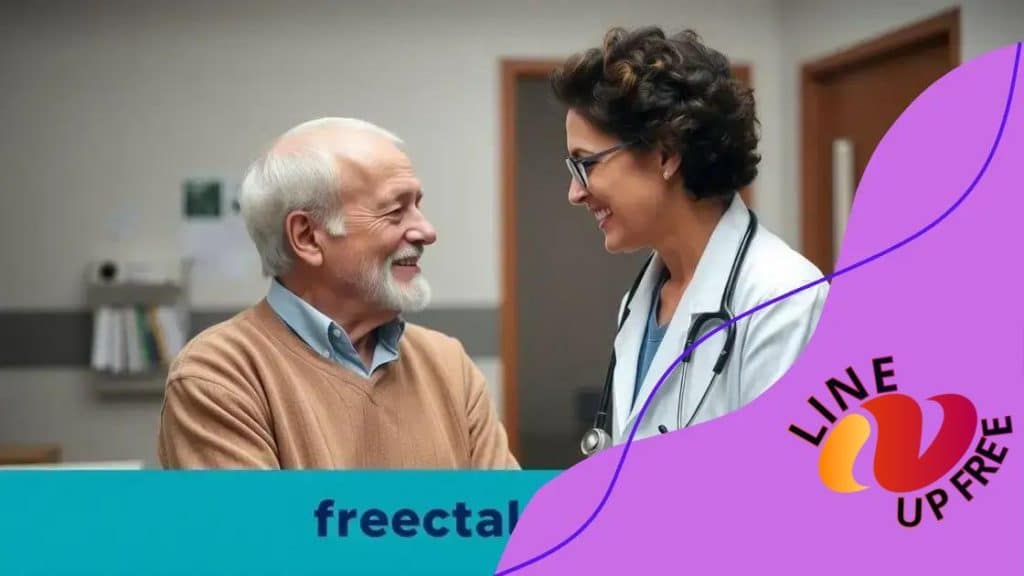Federal funding for senior citizens’ medical care explained

Anúncios
Federal funding for senior citizens’ medical care ensures access to essential healthcare services, including treatments, preventive care, and mental health support, significantly improving their overall well-being and quality of life.
Federal funding for senior citizens’ medical care is an essential resource that helps millions of older adults access necessary healthcare. Have you ever wondered how these funds are allocated and who can benefit? Let’s dive into the crucial details.
Anúncios
Understanding federal funding for seniors
Understanding federal funding for seniors is crucial for many older adults seeking medical care. This funding supports various healthcare needs and provides essential services that promote healthier living among seniors.
What Is Federal Funding?
Federal funding refers to the financial assistance provided by the government to support specific programs. For seniors, this includes healthcare services, prescription medications, and preventive care, ensuring that older adults receive the necessary support for their well-being.
- Healthcare services
- Prescription drug coverage
- Preventive services
- Long-term care assistance
How Is This Funding Administered?
This funding is typically administered through several programs, including Medicare and Medicaid. Medicare offers health coverage for individuals aged 65 and older, while Medicaid assists those with limited income. These programs work together to provide comprehensive support.
Anúncios
By understanding how federal funding works, seniors can better navigate their healthcare options. Each program has specific eligibility criteria, so it’s essential for seniors to understand their rights and the resources available to them.
Eligibility Criteria
Seniors often wonder whether they qualify for these programs. Generally, eligibility is based on age, income, and disability status. Here are some common criteria:
- Age 65 or older
- Must be a U.S. citizen or legal resident
- Income level relative to federal guidelines
Many seniors also qualify for additional assistance, including Supplemental Security Income (SSI) if they have low income. It’s beneficial to explore all available resources to maximize the healthcare support they receive.
In conclusion, understanding federal funding for seniors is vital for accessing necessary medical care. Seniors must stay informed about the assistance available to them and how to apply for these important services.
Types of medical care covered
There are various types of medical care covered under federal funding programs. Understanding these services is essential for seniors seeking help with their healthcare needs. This coverage can significantly improve the quality of life for older adults by ensuring they receive the medical attention they require.
Hospital Services
Hospital services are a primary component of medical care funded by programs like Medicare. These include necessary treatments provided during a hospital stay.
- Inpatient care
- Emergency services
- Surgical procedures
Access to hospital care helps seniors manage complex health issues. This type of funding ensures that they can receive the right treatment without financial strain.
Outpatient Services
Outpatient services provide essential care without requiring an overnight hospital stay. This includes routine check-ups and minor procedures.
- Regular doctor visits
- Diagnostic tests (like X-rays and blood tests)
- Preventive care and screenings
These services are critical for early detection of health issues. Consistent access to outpatient care helps maintain seniors’ health and prevents complications.
Prescription Drugs
Another important aspect of medical care covered is prescription medications. Federal funding programs assist in managing prescription costs.
Medicare Part D provides coverage for various prescription drugs, which helps seniors afford necessary medications. This funding is vital for treating chronic conditions and maintaining overall health.
Understanding the types of medical care covered under federal funding programs allows seniors to better navigate their healthcare options. By knowing these services, they can advocate for their health needs more effectively.
Eligibility criteria for funding

Understanding the eligibility criteria for funding is essential for seniors seeking medical care through federal programs. These criteria ensure that assistance goes to those who need it most. Let’s explore what makes a senior eligible for federal funding.
Age Requirement
One of the primary criteria is age. Generally, individuals must be at least 65 years old to qualify for programs like Medicare. However, some conditions allow younger individuals with disabilities to access funding. This age requirement helps target resources to older adults who often face various health challenges.
Income Limits
Income levels also play a crucial role in determining eligibility. Many programs offer support based on the applicant’s income. For example, those with a low income may qualify for Medicaid, which provides extensive healthcare services.
- Income must be below a certain threshold
- Income eligibility varies by state
- Assets may also be considered
Understanding income limits can help seniors navigate their options and access the funding they need.
Residency Status
To qualify for federal funding, applicants must be U.S. citizens or legal residents. This requirement helps ensure that resources are allocated to individuals who have established residency in the country. Proof of residency may include documentation like utility bills or lease agreements.
In addition to age, income, and residency, seniors may need to provide medical documentation to verify their health status and explain why they require funding. This step is crucial for certain programs that focus on specific health conditions.
By understanding the eligibility criteria for federal funding, seniors can better prepare for the application process and ensure they meet the necessary requirements to receive assistance.
Application process for benefits
The application process for benefits can seem daunting for many seniors. However, understanding the steps involved can make it much easier to navigate. Knowing what to expect is the first step toward receiving much-needed assistance.
Gather Necessary Documents
Before starting the application, it’s essential to gather all required documents. This may include identification, proof of income, and residency documentation.
- Social Security number or card
- Income information, such as pay stubs or tax returns
- Proof of residency, like utility bills or leases
Having these documents ready can speed up the process and ensure that the application is complete.
Online vs. In-Person Applications
Seniors have the option to apply either online or in person. Many prefer online applications for convenience, as they can complete them from home. To apply online, seniors need to visit the official government website associated with the program.
If they choose to apply in person, they should find their local office and schedule an appointment. This personal interaction can help clarify any questions they may have.
Understanding the Review Process
Once the application is submitted, it goes through a review process. The responsible agency will examine the information provided and may reach out for additional details. This review can take a few weeks.
During this waiting period, it’s crucial to remain patient. Seniors should keep track of their application status, as follow-ups may be needed. They can often check online or contact the office where they applied.
Receiving a Decision
After the review, applicants will receive a decision. If approved, they will get information on their benefits and how to access them. If denied, they will receive an explanation and may have options for appealing the decision.
Understanding the application process for benefits helps seniors feel more confident and prepared. Knowledge is key to ensuring they receive the support they need.
Impact on seniors’ overall health
The impact on seniors’ overall health from federal funding cannot be overstated. Access to proper medical care plays a crucial role in enhancing the lives of older adults. This funding makes it possible for seniors to manage existing health conditions and maintain an active lifestyle.
Access to Necessary Treatments
With federal funding, seniors can receive necessary treatments that might otherwise be unaffordable. This includes regular check-ups, surgeries, and specialized care that address chronic illnesses.
- Improved management of chronic diseases
- Access to preventive care services
- Reduced hospital readmissions
By receiving timely treatments, seniors can avoid complications and enjoy a better quality of life.
Enhanced Mental Health Support
In addition to physical health, federal funding also supports mental health services. Seniors often face challenges such as loneliness and depression, which can significantly affect their well-being. Access to counseling and therapy can help them navigate these feelings.
Having resources for mental health care allows seniors to engage in social activities and build connections with others. This support fosters a sense of community and belonging.
Preventive Care and Education
Education about health and wellness is another vital aspect of the services covered by federal funding. Preventive care programs teach seniors how to maintain their health and prevent the onset of diseases.
Examples of these programs may include:
- Health workshops and seminars
- Nutrition and fitness classes
- Screening events for early detection
By focusing on prevention, seniors can lead healthier lives and reduce the risk of developing serious health issues.
The overall impact of federal funding on seniors’ health goes beyond immediate medical care. It improves their physical, mental, and emotional well-being, helping them live fulfilling lives.
FAQ – Questions about federal funding for seniors’ medical care
What types of medical care are covered by federal funding?
Federal funding covers various types of medical care, including hospital services, outpatient services, mental health support, and prescription drug coverage.
Who is eligible for federal funding for medical care?
Seniors aged 65 and older, along with some younger individuals with disabilities, may be eligible for federal funding based on age, income, and residency status.
How can seniors apply for benefits?
Seniors can apply for benefits either online through government websites or in person at their local social services office, depending on their preference.
How does federal funding impact seniors’ overall health?
Federal funding significantly improves seniors’ overall health by providing access to necessary medical treatments, preventive care, and mental health support, enhancing their quality of life.





